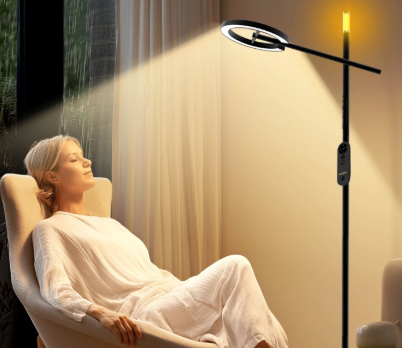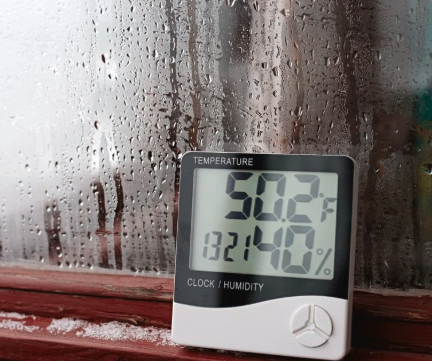Your backyard can be a relaxing retreat, but those annoying ticks, mosquitoes, and flying insects hiding there don’t just bite—they can also transmit diseases such as Eastern Equine Encephalitis and Lyme disease. So how can you keep these pests away? Many people might first think of insecticides—but are they really effective and safe? Products containing Bifenthrin, a commonly used insecticide, are often recommended. Bifenthrin is particularly effective against ticks, ants, flies, and mosquitoes—the typical pests found in backyards.

However, households with children and pets should be cautious. Many insecticides contain harmful chemicals. According to the U.S. Environmental Protection Agency (EPA), these products may also pose risks to birds, fish, other aquatic life, and beneficial insects like bees. Fortunately, there are many other ways to control pests beyond chemical sprays. Here are 14 methods to help keep mosquitoes, ticks, and other insects out of your backyard:
1. High-Tech Pest Control
High-tech pest control devices offer a quiet, odorless, and efficient way to repel insects. If you are concerned about using insecticides, these devices are an excellent alternative.
Outdoor mosquito traps, for example, are both effective and environmentally friendly. They attract insects using UV light and eliminate them with an electric grid. They work best at night when there are no competing light sources like street lamps or porch lights.
Flying insect traps are another option. These can be hung discreetly on patios or balconies and release carbon dioxide to attract more insects.
2. Replace Incandescent Bulbs with LED Lights
Insects are generally attracted to light but tend to avoid warm LED lights. Replacing traditional incandescent bulbs with warm-colored LEDs—such as orange or yellow—can create a cozy atmosphere while reducing insect activity.
3. Citronella Candles
Citronella candles are a classic backyard accessory, whether in the city or countryside. They are inexpensive and practical. While they are not as powerful as bug zappers or insecticides, they add ambiance to your outdoor space. A single citronella candle can burn for 26–30 hours.
For a more natural approach, planting citronella plants is even better. Whether as potted plants or around a patio, they help keep your outdoor area fresh and pleasant.
4. Physically Block Insects
Creating an insect-free space can be as simple as installing a patio enclosure. These enclosures typically use mesh screens to block insects while allowing light and airflow.
If you don’t want a permanent structure, portable pop-up gazebos are a flexible option. For a more long-term solution, aluminum patio enclosures with sliding doors and windows allow easy access while keeping insects out.
5. Maintain Your Backyard
Preventive maintenance is the best insect deterrent. Standing water is especially attractive to mosquitoes. To manage water accumulation, you can dig small drainage channels lined with peat moss or install a French drainage system. The key is to avoid giving mosquitoes a place to breed.
Garbage bins are another hotspot for insects. Keep bin lids closed and store outdoor food in glass or plastic containers to prevent contamination.
Regular lawn maintenance is also crucial. Trim your grass at least once a week, keeping it short and neat. Dispose of clippings away from your home to prevent pests from hiding there.
High grass and dense bushes are also common hiding places for ticks and other insects. Trim them regularly to prevent pests from climbing up tall leaves.
6. Natural Repellent Sprays
Many natural insect sprays are safe for humans. They often use plant-based ingredients such as lemon, mint, rosemary, basil, parsley, and lavender essential oils, which have antimicrobial properties that can also kill insect larvae.
Lemon eucalyptus oil is a common ingredient. Its strong lemon scent masks human odors, making it harder for mosquitoes to detect you. Components like citronellal have proven mosquito-repelling effects and provide long-lasting protection.
7. Hang Bug Zappers
Hanging bug zappers in your backyard can eliminate flying insects instantly through electric shocks. They are particularly effective against mosquitoes and moths. However, be aware that zappers may also kill beneficial insects.
8. Use a Water Spray to Remove Leaf-Eating Insects
For small pests like aphids, a strong water spray can be effective. When you notice them feeding on leaves, spray them off your plants.
Aphids can be a major problem in vegetable gardens. If infestations are heavy, consider introducing ladybugs—they eat aphids and are harmless to plants.
9. Soap Water for Larger Insects
For larger insects such as caterpillars, use a bucket of soapy water. Inspect your plants, and drop the insects into the bucket. The soap prevents them from moving and kills them quickly.
This method is fine for a few insects but becomes impractical for large-scale infestations.
10. “Insects vs. Insects”
Parasitic nematodes are natural garden helpers. These tiny organisms burrow into the soil and attack pests from the inside, feeding on caterpillars, termites, and grubs.
After the pests are gone, nematodes remain in the soil, continuing to target harmful bacteria and fungi. Garden centers typically recommend 13,000–35,000 nematodes per square foot.
11. Neem Oil
Neem oil is a versatile and safe option for pets and children. Dilute according to instructions and spray on large leafy plants to prevent pests and fungal infections.
Note: Neem oil is slightly toxic to birds and fish. Avoid spraying before rain to prevent it from contaminating water bodies.
12. Encourage Natural Predators
Birds and bats are natural predators of many backyard pests. You can attract them by installing birdhouses or bat houses and providing bird feeders or baths.
Keep in mind that birds are wary of shiny metallic objects, so avoid excessive metal decorations in your yard.
13. Plant the Right Vegetation
Planting appropriate plants is an eco-friendly way to repel pests. Healthy plants are less likely to attract insects, while unhealthy ones can be magnets for pests.
Some effective plants include: geranium, lavender, mint, jasmine, night-blooming jasmine, basil, marigold, lemon balm, lemongrass, citronella, catnip, garlic, rosemary, vervain, sage.
Take time to research which plants thrive in your yard, considering sunlight, water needs, and other growing conditions.
14. Rotate Your Crops
Some pests, like caterpillars, lay eggs on familiar plants. Rotating crops every year—or at least changing plant locations—can disrupt pest life cycles. A 3–4 year rotation cycle is ideal.
With these 14 methods, you can protect your backyard without always depending on harmful chemicals. By mixing natural sprays, smart lights, clean habits, and helpful plants, your outdoor space can stay peaceful.






